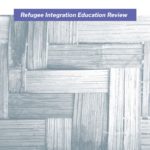 Refugee Integration Education Review
Refugee Integration Education Review
Given the recent intensity in dialogue around refugee return to Myanmar, a review and examination of return dynamics and education issues and concerns that refugee children will experience significant challenges in their pursuit of education upon return.
This Refugee Integration Education Review was designed to assess the dynamics of the future return of refugees within the context of education in order to broadly identify the educational interests and hopes of refugee families upon return to Myanmar, uncover potential, and existing challenges for children aiming to access various forms of education, and begin to explore the current situation in areas of return, including existing gaps and opportunities.
Findings from this review study have been used to develop recommendations for service provision, policy engagement and planning, information management, coordination, state/regional-level engagement, and student and teacher recognition. In doing so, this report aims to offer pathways toward solutions to ensure the continued provision of quality, recognized education for refugee children and youth returning to Myanmar.
To aid accessibility and momentum, and in particular for audiences familiar with refugee education, the recommendations are put forward at the outset. World Education, 2017.
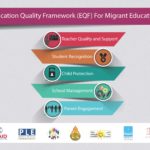 Education Quality Framework (EQF)
Education Quality Framework (EQF)
Education Quality Framework Tool in Burmese and English
Education Quality Framework Tool in Thai
Education Quality Framework User Manual in Burmese
The Education Quality Framework (EQF) was created to provide consistent standards for education quality in migrant learning centers, through a comprehensive process of consultations and workshops with migrant education stakeholders beginning in November 2015. Following the pilot of the tool in 2016-2017, it has now been revised based on feedback from implementing partners and the school headmasters they support. The EQF tool is available in Myanmar language, Thai and English and has been approved by the Royal Thai Government’s Ministry of Education.
The tool EQF tool was finalized in July 2017, and based on implementing partner feedback, and a user manual was created and agreed by the implementing partners in Burmese language only. (Unformatted English PDF translation available by special request). A database was also developed for and housed with the 3 implementing partners to record and review their progress in the future. Implementing partners plan to conduct their next school assessments by November 2017 and will then meet to share results December 2017.
Thanks to the people and organizations who have made, and will continue to make, the EQF an effective tool for strengthening access to quality, recognized education for migrant children living on the Thai-Myanmar border. In particular, thanks goes to:
Implementing partners: The Burmese Migrant Workers’ Education Committee (BMWEC), The Burmese Migrant Teacher’s Association (BMTA) and Help Without Frontiers (HWF).
Wider migrant education stakeholders involved at various stages including the initial discussions, the creating and/or editing of the EQF: Mobile Education Partnerships (MEP), The Migrant Education Coordination Center (MECC), Save the Children, The Suwannimit Foundation, The Map Foundation and Colabora Birmania.
The EQF was developed through financial support from the USAID funded project for Local Empowerment (PLE), as well through support from a private foundation under our Pathways to Accredited Centers of Education (PACE) project.
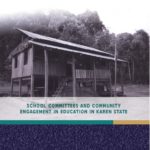 School Committees and Community Engagement in Karen State
School Committees and Community Engagement in Karen State
School Committees and Community Engagement in Karen State
Drawing on information obtained through in-depth research with local actors in different areas of Karen State, this report describes community engagement in education, as well as factors restricting and enabling local engagement and decision-making. Focusing on different socio-political contexts the report highlights ways in which socio-political factors can impact on patterns of community engagement in education, as well as on local agency for school-based management and education decision-making. This research study was led by Dr. Anne Décobert. This report and results are the responsibility of the authors, and do not necessarily reflect the views of USAID. June 2016
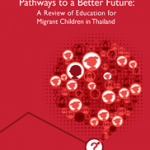 Policy Brief: Migrant Education in Thailand
Policy Brief: Migrant Education in Thailand
To understand and address the many challenges in providing a quality education for children of migrants from Myanmar (Burma) living in Thailand, World Education and Save the Children have carried out a comprehensive review of the sector. This policy brief presents a summary of some of the key findings and recommendations.
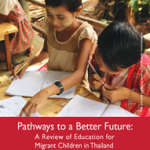 Pathways to a Better Future: A Review of Education for Migrant Children in Thailand
Pathways to a Better Future: A Review of Education for Migrant Children in Thailand
Over the past decade, Thailand has received a large number of migrant workers from its neighboring country, Myanmar (Burma), along with hundreds of thousands of their children. However, the provision of education to the children of migrant workers from Myanmar living in Thailand varies significantly across the country. This report assesses the current educational opportunities available to migrant children in Thailand in order to identify best practices, weaknesses, and challenges, and to understand the needs and vision of migrant communities. This will allow for evidence-based recommendations for the strengthening of education for migrant children in Thailand.
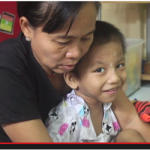 World Education Thailand Videos (YouTube Channel)
World Education Thailand Videos (YouTube Channel)
World Education Thailand has produced videos featuring its current work, including a special education center and non-formal education programs.
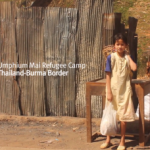 World Education Thailand-Myanmar Projects Videos (2011-2012)
World Education Thailand-Myanmar Projects Videos (2011-2012)
Project videos from 2011-2012 highlight various programs, from transformative learning centers to a special education center.
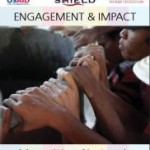 SHIELD Brochure
SHIELD Brochure
World Education implemented the education component of the USAID-funded Supporting Health, Institution Building, Education and Leadership in Policy Dialogue (SHIELD) project from 2005-2010. Education quality and access was improved for thousands of children.
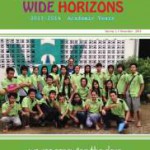 Wide Horizons 2013-2014 Newsletter
Wide Horizons 2013-2014 Newsletter
Wide Horizons is an adaptive learning center established by World Education Thailand in 2006. The students who attend do an intensive study of community development skills and English. As part of this, they have written newsletters about their activities.
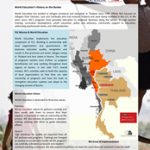 Project for Local Empowerment (PLE) Overview
Project for Local Empowerment (PLE) Overview
World Education implements the education component of the Project for Local Empowerment (PLE). The Overview outlines the programs implemented and partners involved.
